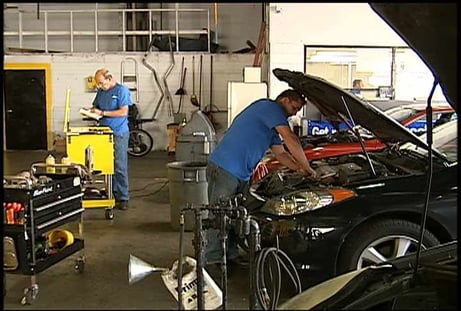This guest post is authored by Chad Harper, senior director of technology at MAVERICK Technologies.
Several years ago, my family owned a Honda and a Chevy. When we initially bought our cars, we took them to the respective dealers for routine maintenance and service. It seemed like the obvious thing to do in this era of high-tech automobiles, since they should know their cars best. However, after a while I began to feel like the customer service was not the best and the prices were ever increasing. At one point one of them insisted on several hundred dollars of repairs that I knew I didn’t need, and that was the last straw.
I began testing several independent service shops near my home, and one in particular stood out. They had certified technicians to handle all major brands and models, and it was clear that they could handle these tech-loaded autos. The service was friendly and convenient, the prices were reasonable, and thus began my long patronage of this shop.
Over the years, I’ve religiously used them for all repairs and service. An oil change costs a few bucks more than the quick lube, but when larger repair issues arise, they are always correct in their assessment, take me out to show me the problem, and have often suggested fixes that wouldn’t necessarily bring them the most money. In short, they are honest and good at what they do, which is something we all look for in a business/customer relationship.
When I sold my Chevy and bought a Mazda, I didn’t have to hope that the Mazda dealer’s service department would treat me right. I had my own independent service shop that could handle whatever automobiles I happen to own at the time.
Today, many of our manufacturing plants and mills have a variety of control systems, including DCS, PLCs, safety systems, etc. With plant engineering resources busier than ever, it may not make sense to go back to the dealer with each of these systems. It may be time to consider an independent, platform-agnostic partner to support your various needs within the plant.
As control systems continue to evolve, there is a lot of commonality between the platforms. We’ve found it surprisingly easy to cross-train experts in one platform on another platform. These “multi-lingual” engineers are invaluable at solving complex control and communication problems that exist. Along with dedicated technology experts, these multi-platform engineers provide the flexibility and support that facilities need.
In addition, having a provider that knows all aspects of the control systems, from hardware, networking, basic configuration, APC, all the way up to your ERP system, provides you with someone who is looking at all the pieces of the puzzle, and understands that the sum of all the parts is much greater than the pieces.
Finally, just as car dealers push the latest add-ons, rust-proofing, extended warranties, and other high profit items, control system vendors often have similar agendas, looking to sell high-profit licenses, add-ons, and other peripherals. By nature, independent auto service shops, and similarly independent automation companies, can provide an objective assessment on the value of those extras, and will be more likely to tell you what you don’t need as well as what is best for you.
If you are the type of person that realizes that independent car service shops can often be an ideal partner compared to the dealer shop, then consider this approach with your control systems as well.
 About the Author
About the Author
Chad Harper serves as the leader of MAVERICK’s Technology Group which provides content for training programs, reuse strategies, and ensures quality on projects on those platforms. He previously served as the operations manager for MAVERICK’s Automation Solutions — South Region, working out of the Baton Rouge, La., office. Chad joined MAVERICK in 2007 as an APC engineer when the company acquired C. F. Picou Associates, where he had worked for more than a decade.



